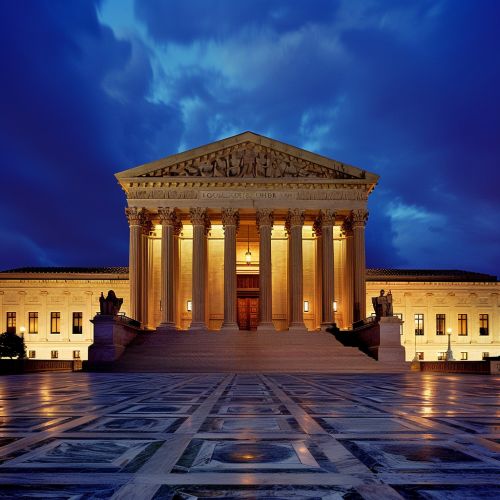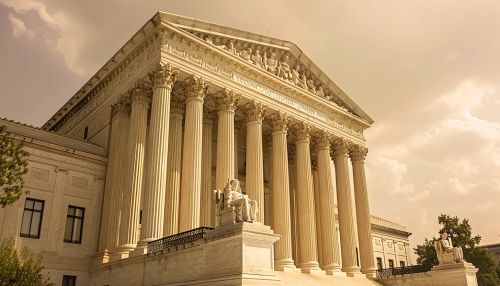Chaplinsky v. New Hampshire
Background
The case of Chaplinsky v. New Hampshire (1942) is a landmark decision by the United States Supreme Court that established the "fighting words" doctrine, a significant limitation on the First Amendment's guarantee of freedom of speech. The case arose from a confrontation in Rochester, New Hampshire, where Walter Chaplinsky, a Jehovah's Witness, was distributing religious literature and denouncing organized religion. When confronted by a city marshal, Chaplinsky called him a "God-damned racketeer" and "a damned Fascist." He was subsequently arrested and convicted under a state law prohibiting offensive or derisive speech in public.
Legal Context
The First Amendment to the United States Constitution provides that "Congress shall make no law... abridging the freedom of speech." However, this right is not absolute. Over time, the Supreme Court has identified several categories of speech that are not protected by the First Amendment, including obscenity, defamation, and incitement to imminent lawless action. Chaplinsky v. New Hampshire introduced another category: "fighting words."


Facts of the Case
On April 6, 1940, Walter Chaplinsky was distributing literature that attacked conventional forms of religion, calling them a "racket." A crowd gathered, and some individuals became agitated. A police officer warned Chaplinsky about the disturbance he was causing and later returned to find the situation had escalated. When the city marshal intervened, Chaplinsky directed offensive language at him, leading to his arrest under a New Hampshire statute that prohibited addressing "any offensive, derisive or annoying word" to any person lawfully in a public place.
Procedural History
Chaplinsky was convicted in the Municipal Court of Rochester and fined. He appealed to the New Hampshire Supreme Court, arguing that the statute violated his First Amendment rights. The state court upheld the conviction, stating that the law was a valid exercise of the state's police power to maintain public order. Chaplinsky then appealed to the United States Supreme Court.
Supreme Court Decision
The Supreme Court, in a unanimous decision written by Justice Frank Murphy, upheld Chaplinsky's conviction. The Court held that certain "well-defined and narrowly limited" categories of speech fall outside the bounds of constitutional protection. Among these are "fighting words"—words that "by their very utterance inflict injury or tend to incite an immediate breach of the peace."
Fighting Words Doctrine
The "fighting words" doctrine established in Chaplinsky v. New Hampshire is a significant limitation on free speech. The Court defined fighting words as those that "have a direct tendency to cause acts of violence by the person to whom, individually, the remark is addressed." This doctrine recognizes that some speech is so inherently likely to provoke a violent reaction that it falls outside the protections of the First Amendment.
Impact and Subsequent Developments
The Chaplinsky decision has had a lasting impact on First Amendment jurisprudence. It established a precedent for limiting speech that incites immediate violence. However, subsequent cases have refined and, in some instances, limited the scope of the fighting words doctrine. For example, in Terminiello v. Chicago (1949), the Court emphasized that speech could only be restricted if it presented a "clear and present danger" of a serious substantive evil.
In Cohen v. California (1971), the Court further narrowed the fighting words doctrine, ruling that a man who wore a jacket bearing the words "Fuck the Draft" in a courthouse did not use fighting words because his speech was not directed at a specific individual and did not provoke an immediate violent reaction.
Criticisms and Controversies
The fighting words doctrine has been criticized for its potential to suppress free speech. Critics argue that the doctrine is too vague and subjective, allowing for arbitrary enforcement. Additionally, some contend that the doctrine is incompatible with the principle of viewpoint neutrality, as it can be used to silence unpopular or controversial speech.
Conclusion
Chaplinsky v. New Hampshire remains a foundational case in First Amendment law, establishing the principle that not all speech is protected under the Constitution. The fighting words doctrine continues to be a relevant, albeit contentious, aspect of free speech jurisprudence.
See Also
- First Amendment to the United States Constitution
- Terminiello v. Chicago
- Cohen v. California
- Freedom of Speech in the United States
References
- Chaplinsky v. New Hampshire, 315 U.S. 568 (1942).
- Terminiello v. Chicago, 337 U.S. 1 (1949).
- Cohen v. California, 403 U.S. 15 (1971).
